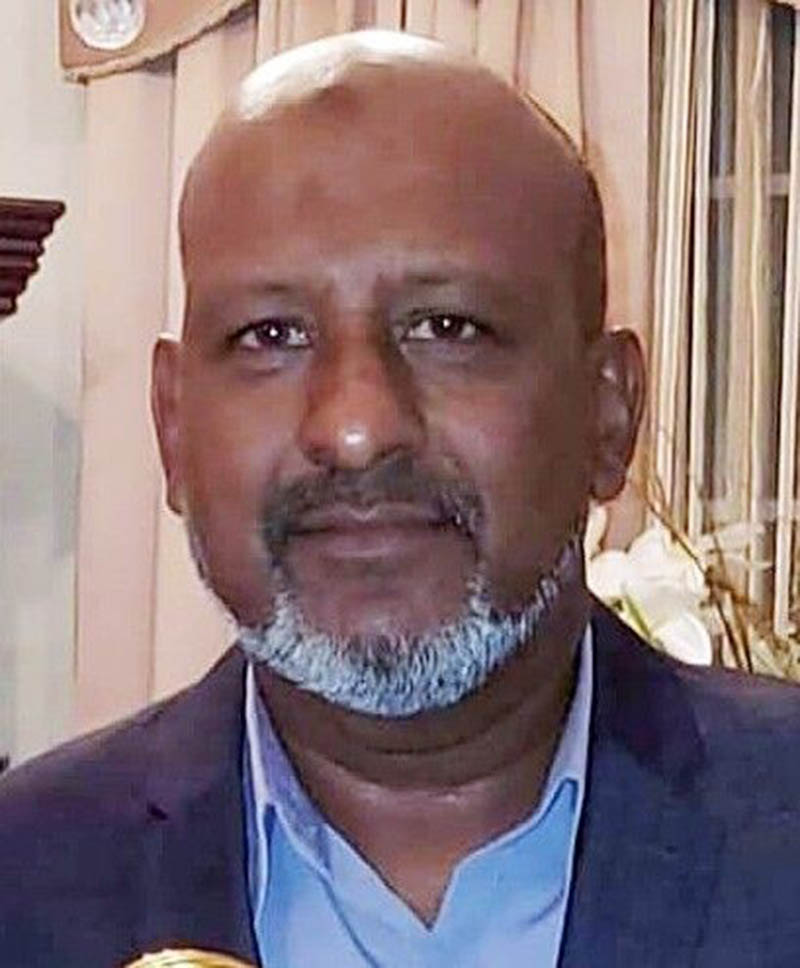(Trinidad Express) Businessman Inshan Ishmael has been defeated in a civil lawsuit he brought against the Trinidad Express Newspapers Ltd, and its editor-in-chief Omatie Lyder and journalist Renuka Singh for defamation of character.
His claim for $1.5 million in loss of income was also dismissed while costs are to be assessed.
Ishmael had claimed that four articles published in the newspaper portrayed him as being involved in terrorist financing.
In a ruling delivered yesterday, Justice Frank Seepersad dismissed Ishmael’s claim, saying it was without merit.
“The four articles were fair, measured and balanced. The requisite comments were sourced. They contained the claimant’s denials as well as him distancing himself from any terrorist involvement,” said the judge. He said, having read the first article, which was written by Singh, the court formed the view that it was balanced and accurately quoted information that was supported by documents.
Justice Seepersad pointed out that responses given to Singh by Ishmael in response to the allegations against him were not “tucked away” in the articles, but instead formed a substantial part of it.
Ishmael claimed the articles alleged that he was being investigated by the Financial Investigations Branch (FIB) following a series of flagged bank transfers between 2009 and 2014 to two international charities-Muslim Aid and Human Concern International, which were allegedly linked to terrorist organisation at the time.
He had claimed the articles, published in January 2017, were baseless, false and malicious and had a significant negative effect on him and his businesses.
Strong public interest
In his ruling, the judge pointed out the complaints by Ishmael over the subsequent articles were all based on a rehashing of information from the first publication.
While Justice Seepersad noted the case should be dismissed based on his findings of whether the articles contained defamatory content, he still went on to consider whether the newspaper and its editorial staff could avail themselves of the defence of Reynolds privilege if the articles were found to be defamatory.
Reynolds privilege provides a level of protection to journalists who responsibly report on matters of public concern.
Justice Seepersad said in Trinidad and Tobago there was a strong public interest in the enforcement of laws related to terrorist financing.
In one of the articles, Singh’s source was the Office of the Attorney General, he pointed out. The AG’s Office had indicated that the investigation against Ishmael over the alleged financing was closed.
“The publication of this position demonstrated that the first defendant (Singh) was not driven by malicious intent and the information which was published referenced matters of public interest,” the judge said.
While Justice Seepersad highlighted the role of investigative journalism in a functional democracy, he said in his view that the articles did not fall into that category of journalism.
“It is the view of this court that the articles were not the product of investigative reporting as there was neither an unearthing of information which was hidden in the dark nor was there the exposing of conduct which required review, rejection or action,” the judge stated.
He warned, however, that there were potential effects of media reports that may inform individuals of investigations they may be subjected to.
The judge pointed out the investigation into Ishmael was not compromised by the reports as they were published almost two years after the investigation had started.
Ishmael’s denial
Ishmael, while testifying at the trial, denied he was linked to any terrorist organisation or was providing any financial assistance to any such organisation. The two organisations to which he was funding were charitable in nature and the funds were intended to provide aid to people living in Somalia, he contended.
Ishmael was unable to say why one of the transactions was red-flagged by the Royal Bank of Canada.
Following the judgment, the judge gave a directive to attorneys on both sides to file submissions on the issue of cost to be paid. That issue will be adjudicated upon at a later date.
Appearing for Ishmael were senior counsel Reginald Armour (now Attorney General), who led attorneys Ravindra Nanga and Elena Araujo. The Express, Singh and Lyder were represented by attorneys Faarees Hosein and Carolyn Ramjohn-Hosein.











